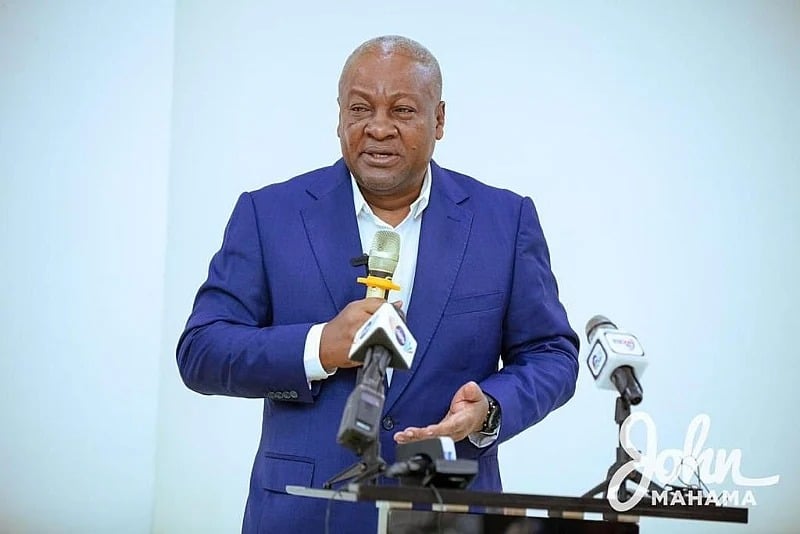The National Democratic Congress (NDC), under the leadership of Mr. John Dramani Mahama, is preparing to launch a transformative ‘National Apprenticeship Programme’ aimed at fostering self-employment among Ghanaian youth. According to Mahama, who is the party’s candidate for the 2024 Presidential elections, this initiative will offer free technical and vocational training to young individuals in various skilled trades. Upon completion of their training, apprentices will receive appropriate certification, along with essential start-up capital and equipment necessary for establishing their businesses. This initiative is part of the broader vision outlined in the party’s manifesto, “Resetting Ghana: Jobs, Accountability, and Prosperity,” which emphasizes the need for inclusive growth through investment in human capital.
In the realm of technical and vocational education and training (TVET), Mahama has pledged significant reforms aimed at improving the system to meet contemporary demands. He highlighted the integration of digital skills and soft skills into the training programs, emphasizing the need for a practical approach to teaching trade skills and entrepreneurial capabilities. The overarching goal is to build a skilled workforce capable of filling the burgeoning job market, especially in the context of a 24-hour manufacturing economy. To achieve this, he proposed enhancing the infrastructure for Competency-Based Training (CBT) while improving the overall perception and accessibility of TVET programs.
To support artisans and others in the informal TVET sector, Mahama’s administration would focus on providing vocational training and start-up assistance. He plans to initiate the establishment of regional TVET Centres of Excellence, equipped with modern facilities that foster innovation and simulate actual working environments. Recognition of prior learning for existing artisans will also be critical, allowing them to validate their skills and pursue further academic and career advancement through structured programs run by accredited institutions.
Mahama also emphasizes the importance of creating MakerSpaces, which would serve to encourage innovation and entrepreneurship among TVET graduates. These spaces would provide the necessary equipment and resources for graduates to tap into their creative potential. The proposed integration of digital tools, such as project management software and digital marketing, into TVET operations speaks to the need for graduates to be proficient in modern skills relevant to industry demands. Moreover, he highlights the necessity for affirmative action initiatives aimed at ensuring equitable participation in TVET, particularly focusing on women and individuals with disabilities.
Another essential aspect of Mahama’s agenda is fostering stronger connections between TVET institutions and industries, including small and medium enterprises (SMEs) in key sectors such as manufacturing and construction. This would be achieved through workplace experiential learning programs that provide students with hands-on experience while simultaneously enhancing the skill sets being taught. He also envisions a well-resourced framework capable of fully implementing the National TVET Qualification, thereby promoting career advancement within the TVET field.
To bolster the effectiveness and outcomes of the TVET system, Mahama outlines plans to harmonize assessment mechanisms across various agencies and establish sustainable funding sources through collaborative efforts with stakeholders. He urges the electorate to support his candidacy and the NDC to bring about these crucial changes, enhancing both the nation’s economic prospects and the livelihood of its citizens. Mahama’s comprehensive vision aims not only to rebrand TVET as a vital component of the economy but also to ensure that Ghana’s workforce is well-equipped to thrive in an increasingly competitive global landscape.














